Who is Peter Sloterdijk?
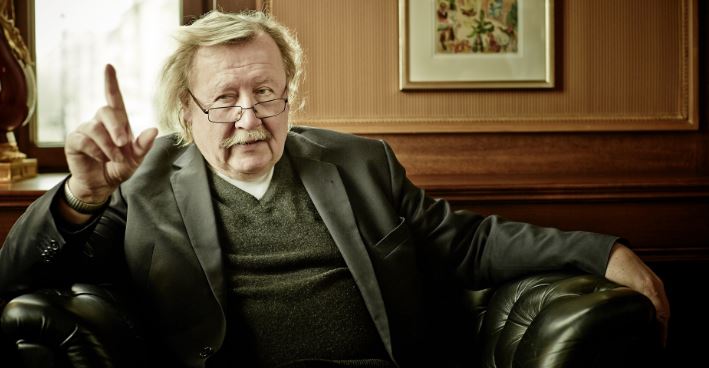
1.1 Peter Sloterdijk’s multidisciplinary approach
Peter Sloterdijk, a German philosopher, cultural theorist, and essayist, has emerged as one of the most influential and thought-provoking thinkers of the 21st century. His work spans a wide range of disciplines, including philosophy, psychology, anthropology, and political theory, making him a truly multidisciplinary thinker. Sloterdijk’s unique approach to philosophy has earned him a reputation as a provocative and original thinker, challenging conventional ideas and pushing the boundaries of contemporary thought.
1.2 Sloterdijk as a pioneering metamodern thinker
In recent years, there has been growing interest in the concept of metamodernism, a new cultural paradigm that seeks to move beyond the limitations of postmodernism. Sloterdijk’s work can be seen as a precursor to this emerging paradigm, as he has consistently challenged the assumptions of modernity and postmodernity, while offering new perspectives on the human condition. His ideas have had a significant influence on contemporary metamodern thinkers, making him a pioneering figure in this new intellectual movement.
Sloterdijk’s Philosophical Approach
2.1 The concept of “spheres”
One of the central concepts in Sloterdijk’s philosophy is the notion of “spheres.” According to Sloterdijk, human existence is fundamentally shaped by the various spheres in which we live, from the intimate sphere of the womb to the global sphere of the modern world. He argues that these spheres provide a sense of meaning and belonging, and that the loss of traditional spheres in the modern world has led to a profound sense of alienation and disconnection.
2.2 Sloterdijk’s critique of modernity
Sloterdijk is highly critical of the project of modernity, which he sees as a misguided attempt to create a rational, autonomous subject. He argues that this project has led to a range of pathologies, from the rise of totalitarianism to the environmental crisis. In contrast, Sloterdijk advocates for a more embodied and relational understanding of the human subject, one that recognizes our fundamental interconnectedness with the world around us.
2.3 The influence of Nietzsche and Heidegger
Sloterdijk’s philosophical approach is deeply influenced by the work of Friedrich Nietzsche and Martin Heidegger. Like Nietzsche, Sloterdijk is critical of traditional morality and advocates for a more affirmative, life-enhancing approach to ethics. And like Heidegger, he emphasizes the importance of Being and the need to overcome the metaphysical tradition of Western philosophy. At the same time, Sloterdijk is not afraid to challenge and critique these thinkers, offering his own unique perspective on their ideas.
Implications for Psychology and Psychotherapy
3.1 The concept of “anthropotechnics”
Sloterdijk’s work has important implications for psychology and psychotherapy. One of his key concepts is that of “anthropotechnics,” which refers to the various techniques and practices that humans use to shape and transform themselves. Sloterdijk argues that psychotherapy can be seen as a form of anthropotechnics, a way of helping individuals to develop new ways of being in the world.
3.2 Sloterdijk’s theory of “thymos”
Another important concept in Sloterdijk’s work is that of “thymos,” which refers to the human desire for recognition and status. Sloterdijk argues that this desire is a fundamental aspect of human psychology, and that it plays a key role in shaping our social and political lives. He suggests that psychotherapy can help individuals to develop a healthier relationship to their thymos, one that is not based on domination or aggression.
3.3 Applications in existential and humanistic psychology
Sloterdijk’s ideas have particular relevance for existential and humanistic approaches to psychology and psychotherapy. His emphasis on the importance of meaning, authenticity, and self-transformation resonates with the values of these traditions. At the same time, his critique of the autonomous subject challenges some of the assumptions of humanistic psychology, suggesting the need for a more relational and contextual understanding of the self.
The Metamodern Turn
4.1 Defining metamodernism
Metamodernism is an emerging cultural paradigm that seeks to move beyond the limitations of postmodernism. It is characterized by a renewed interest in grand narratives, a sense of sincerity and authenticity, and a desire to reconcile the competing demands of irony and enthusiasm. Metamodernism is not a rejection of postmodernism, but rather an attempt to synthesize its insights with those of other intellectual traditions.
4.2 Sloterdijk as a precursor to metamodern thought
Sloterdijk’s work can be seen as a precursor to metamodern thought in several ways. His critique of postmodernism and his emphasis on the importance of meaning and authenticity anticipate key themes in metamodern discourse. At the same time, his willingness to engage with grand narratives and his interest in the transformative potential of technology and science align with the metamodern sensibility.
4.3 The influence of Sloterdijk on contemporary metamodern thinkers
Sloterdijk’s ideas have had a significant influence on contemporary metamodern thinkers. His concept of spheres, for example, has been taken up by theorists such as Hanzi Freinacht and Brent Cooper, who see it as a way of understanding the complex interplay between individual and collective experience. Similarly, his critique of modernity and his emphasis on the need for new forms of “spiritual exercises” have resonated with metamodern thinkers interested in the intersection of spirituality and politics.
Anthropological Insights
5.1 Sloterdijk’s concept of “anthropogenesis”
Sloterdijk’s work also has important implications for anthropology. One of his key concepts is that of “anthropogenesis,” which refers to the process by which humans have evolved and transformed themselves over time. Sloterdijk argues that this process is not simply a matter of biological evolution, but also involves the development of new technologies, social practices, and forms of knowledge.
5.2 The role of technology in human evolution
Sloterdijk is particularly interested in the role that technology has played in human evolution. He argues that humans are fundamentally “prosthetic” creatures, who have always relied on tools and technologies to extend their capabilities. At the same time, he is critical of the way that modern technology has been used to dominate and control nature, suggesting the need for a more symbiotic relationship between humans and the natural world.
5.3 Implications for understanding contemporary culture
Sloterdijk’s anthropological insights have important implications for understanding contemporary culture. His concept of anthropogenesis suggests that we need to look beyond narrow disciplinary boundaries to understand the complex interplay between biology, technology, and culture. Similarly, his emphasis on the prosthetic nature of human existence challenges traditional assumptions about the autonomy and uniqueness of the human subject.
Sloterdijk’s Critique of Globalization
6.1 The concept of “world interior space”
Sloterdijk is highly critical of contemporary globalization, which he sees as a form of “world interior space.” This concept refers to the way that the modern world has become a single, interconnected space, characterized by the flow of people, goods, and information across borders. Sloterdijk argues that this process has led to a range of pathologies, from the erosion of traditional cultures to the rise of global inequality.
6.2 Sloterdijk’s analysis of global capitalism
Sloterdijk’s critique of globalization is closely tied to his analysis of global capitalism. He argues that capitalism has become a kind of “world system,” one that is characterized by the relentless pursuit of growth and the exploitation of both human and natural resources. At the same time, he suggests that capitalism has also created new forms of subjectivity, based on the ideal of the entrepreneurial self.
6.3 The need for a “politics of the Earth”
In response to the challenges of globalization and global capitalism, Sloterdijk calls for a new “politics of the Earth.” This would involve a fundamental rethinking of our relationship to the natural world, as well as a new understanding of the role of politics in shaping the future of the planet. Sloterdijk argues that we need to develop new forms of global governance, based on a recognition of our shared responsibility for the Earth and its inhabitants.
The Relevance of Sloterdijk’s Ideas in the Contemporary World
7.1 Sloterdijk’s contributions to political philosophy
Sloterdijk’s work has important implications for political philosophy. His critique of globalization and his call for a new politics of the Earth challenge traditional assumptions about the nation-state and the international order. At the same time, his emphasis on the transformative potential of technology and science suggests the need for new forms of political engagement and activism.
7.2 Applications in environmental ethics and sustainability
Sloterdijk’s ideas also have important applications in the fields of environmental ethics and sustainability. His concept of the “world interior space” highlights the interconnectedness of human and natural systems, and the need for a more holistic approach to environmental protection. Similarly, his emphasis on the role of technology in human evolution suggests the need for a more nuanced understanding of the relationship between technology and the environment.
7.3 Sloterdijk’s influence on art and aesthetics
Sloterdijk’s work has also had a significant influence on art and aesthetics. His concept of spheres, for example, has been taken up by artists and architects interested in exploring the relationship between space and subjectivity. Similarly, his emphasis on the transformative potential of aesthetic experience has resonated with artists and theorists working in a range of media.
Sloterdijk’s Philosophy of Religion
8.1 The concept of “God after metaphysics”
Sloterdijk’s work also engages with questions of religion and spirituality. One of his key concepts is that of “God after metaphysics,” which refers to the need for a new understanding of the divine in the wake of the critique of traditional metaphysics. Sloterdijk argues that the idea of God needs to be re-imagined in light of contemporary scientific and philosophical insights, rather than being abandoned altogether.
8.2 Sloterdijk’s critique of traditional monotheism
At the same time, Sloterdijk is critical of traditional forms of monotheism, which he sees as being based on a misguided understanding of the relationship between God and the world. He argues that the idea of a transcendent, all-powerful God is no longer tenable in light of modern science and philosophy, and that we need to develop new forms of spirituality that are more immanent and relational.
8.3 The relevance of Sloterdijk’s ideas for contemporary spirituality
Sloterdijk’s ideas have important implications for contemporary spirituality. His emphasis on the need for a post-metaphysical understanding of the divine resonates with many contemporary spiritual seekers, who are looking for ways to reconcile their spiritual beliefs with modern scientific and philosophical insights. At the same time, his critique of traditional monotheism challenges some of the assumptions of mainstream religious traditions, suggesting the need for a more pluralistic and inclusive approach to spirituality.
Challenges and Criticisms
9.1 Controversies surrounding Sloterdijk’s work
Despite his significant contributions to contemporary thought, Sloterdijk’s work has also been the subject of controversy and criticism. Some have accused him of promoting a form of elitism, suggesting that his emphasis on the transformative potential of technology and science is based on a misguided belief in the superiority of certain individuals or groups. Others have criticized his use of provocative language and his willingness to engage with controversial ideas and thinkers.
9.2 Critiques of Sloterdijk’s philosophical approach
There have also been criticisms of Sloterdijk’s philosophical approach. Some have argued that his work is overly speculative and lacks empirical grounding, while others have suggested that his ideas are too abstract and disconnected from the realities of everyday life. There have also been criticisms of his use of neologisms and his tendency to engage in intellectual play, which some see as a form of obscurantism.
9.3 Limitations of Sloterdijk’s theories
Finally, there are limitations to Sloterdijk’s theories that need to be acknowledged. His work is highly theoretical and can be difficult to apply in practice, particularly in the context of complex social and political realities. There are also questions about the extent to which his ideas are truly original, or whether they are simply a synthesis of existing philosophical and theoretical traditions.
Future Directions
10.1 The growing influence of Sloterdijk’s ideas
Despite these challenges and criticisms, Sloterdijk’s work continues to have a significant influence on contemporary thought. His ideas are being taken up by scholars and theorists working in a range of fields, from philosophy and anthropology to art and aesthetics. There is also growing interest in his work among the general public, particularly among those who are seeking new ways of understanding the complexities of the contemporary world.
10.2 Potential applications in various fields
There are many potential applications of Sloterdijk’s ideas in various fields. In the field of psychology and psychotherapy, for example, his concept of anthropotechnics could be used to develop new approaches to self-transformation and personal growth. In the field of environmental studies, his critique of globalization and his call for a new politics of the Earth could inform new strategies for sustainability and ecological justice.
10.3 The need for further research and exploration
At the same time, there is a need for further research and exploration of Sloterdijk’s ideas. Many of his concepts are still being debated and refined, and there is much work to be done in terms of translating his theoretical insights into practical applications. There is also a need for more interdisciplinary engagement with his work, particularly in terms of bringing together insights from philosophy, psychology, anthropology, and other fields.
Enduring Legacy
11.1 Recapitulation of Sloterdijk’s key contributions
In conclusion, Peter Sloterdijk is a pioneering thinker whose work has made significant contributions to contemporary philosophy, psychology, anthropology, and political theory. His multidisciplinary approach and his willingness to challenge conventional assumptions have earned him a reputation as one of the most original and provocative thinkers of our time. His concepts of spheres, anthropotechnics, and thymos have important implications for understanding the human condition, while his critique of globalization and his call for a new politics of the Earth offer new perspectives on some of the most pressing challenges facing the contemporary world.
11.2 Sloterdijk’s place in the history of philosophy
Sloterdijk’s work can be seen as part of a broader tradition of philosophy that seeks to engage with the complexities of the modern world. Like thinkers such as Nietzsche, Heidegger, and Foucault, he is concerned with the ways in which human beings are shaped by the social, cultural, and technological forces that surround them. At the same time, his work is highly original and innovative, offering new insights and perspectives that challenge traditional philosophical assumptions.
11.3 The enduring relevance of Sloterdijk’s thought for the 21st century
Ultimately, Sloterdijk’s thought has enduring relevance for the 21st century. His ideas offer new ways of understanding the challenges and opportunities facing individuals and societies in an age of globalization, technological change, and ecological crisis. His emphasis on the need for new forms of anthropotechnics and spiritual practice resonates with the growing interest in mindfulness, meditation, and other forms of self-transformation. And his call for a new politics of the Earth speaks to the urgent need for global cooperation and solidarity in the face of the existential challenges facing the planet.
As we move forward into an uncertain future, Sloterdijk’s work will continue to be an important resource for those seeking to navigate the complexities of the contemporary world. His ideas offer a powerful reminder of the need for critical reflection, creative experimentation, and ethical engagement in the face of the challenges that lie ahead. Whether we agree with all of his conclusions or not, there is no doubt that Sloterdijk’s thought will continue to shape and inspire new generations of thinkers and activists in the years to come.
References
Bubbles: Spheres Volume I: Microspherology. Semiotext(e). Sloterdijk, P. (2014).
Globes: Spheres Volume II: Macrospherology. Semiotext(e). Sloterdijk, P. (2016).
Foams: Spheres Volume III: Plural Spherology. Semiotext(e). Sloterdijk, P. (2017).
Not Saved: Essays After Heidegger. Polity. Sloterdijk, P. (2018).
What Happened in the 20th Century? Polity. Sloterdijk, P. (2020).
After God. Polity. van Tuinen, S. (2011).
“Air Conditioning Spaceship Earth”: Peter Sloterdijk’s Ethico-Aesthetic Paradigm. Environment and Planning D: Society and Space, 29(1), 105-118. Dorrien, G. (2020).
Social Democracy in the Making: Political and Religious Roots of European Socialism. Yale University Press. Freinacht, H. (2017).
The Listening Society: A Metamodern Guide to Politics Book One. Metamoderna. Cooper, B. (2017).
The Abs-Tract Organization #3: The Metamodern Organization. Metamoderna.
Read More Depth Psychology Articles:
Taproot Therapy Collective Podcast
Jungian Analysts
Anthropology
Mystics and Gurus

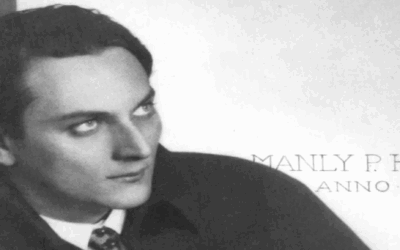
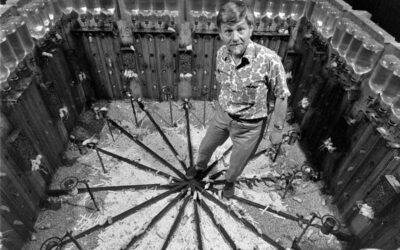
















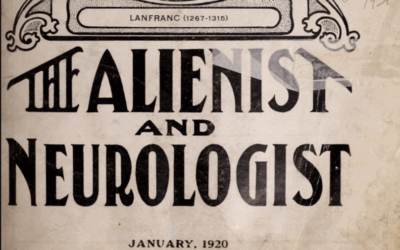



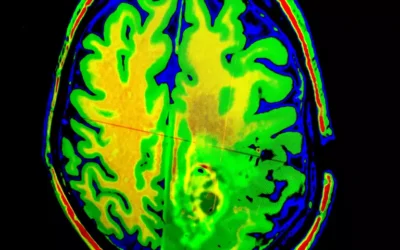
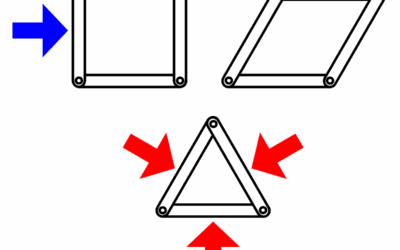

0 Comments